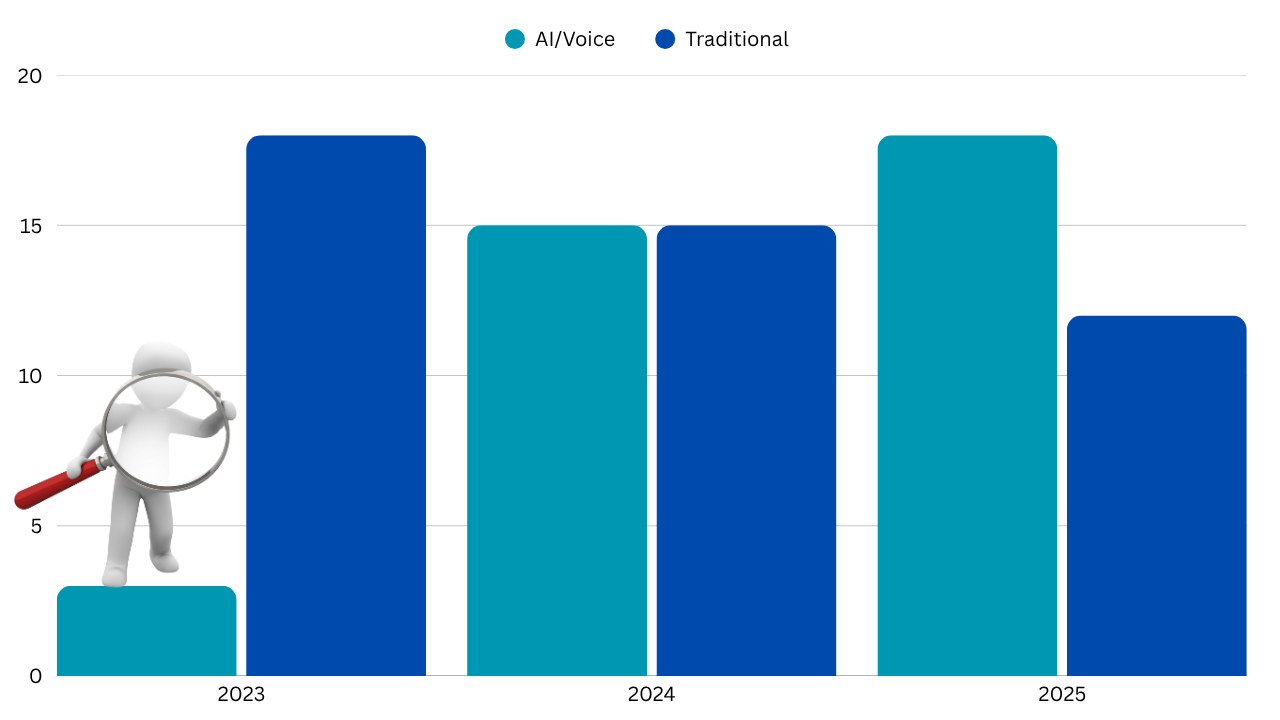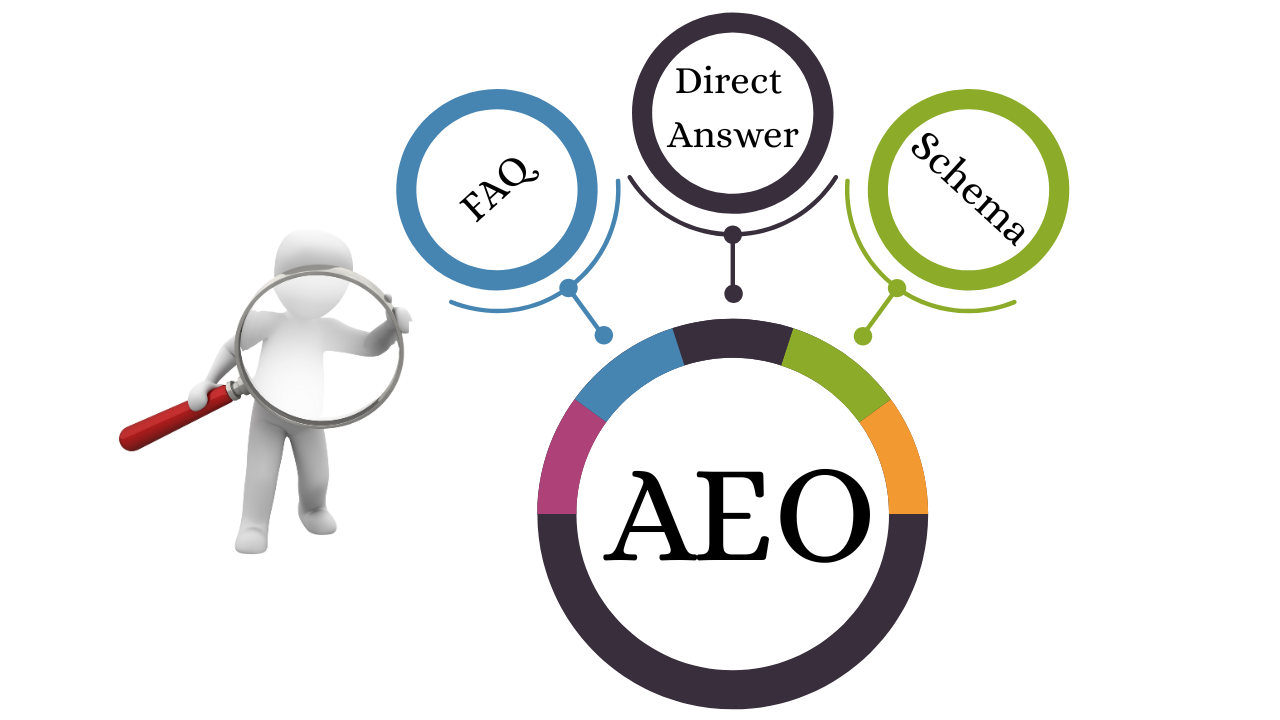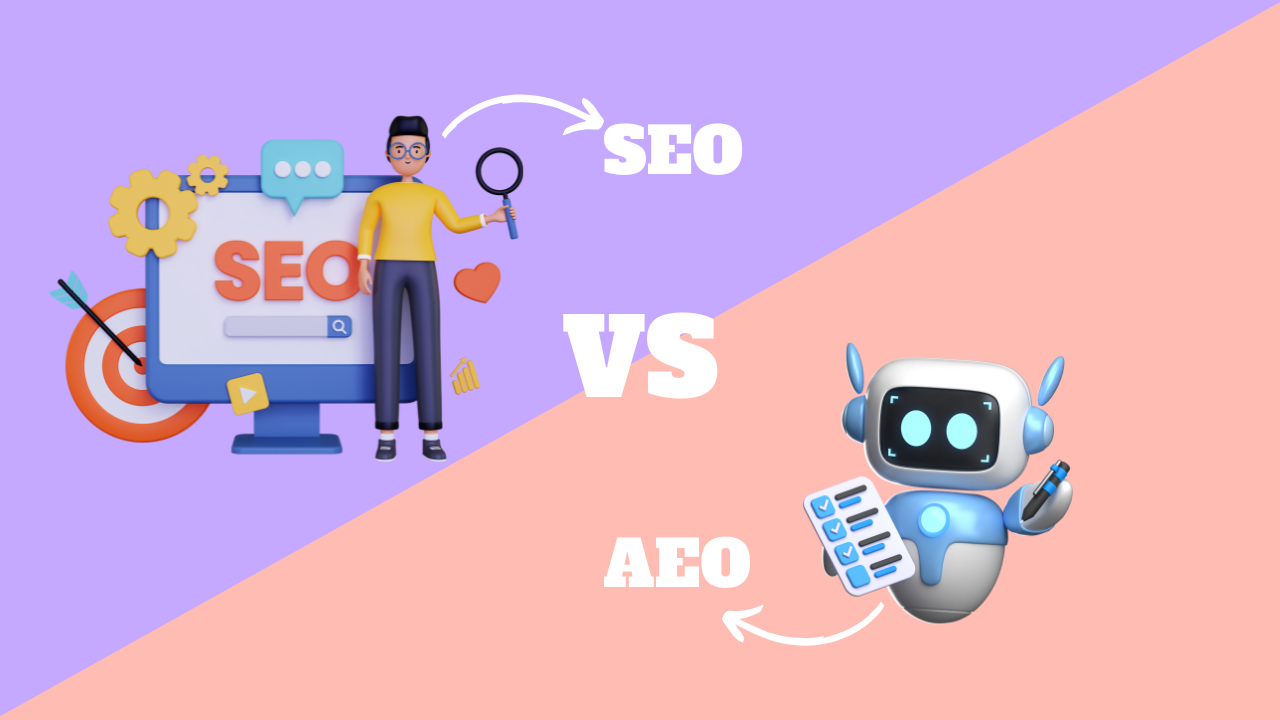AEO vs SEO: The Real Future of Search Optimization in 2025?
In the constantly evolving digital world, Search Engine Optimization (SEO) has long been the king of content visibility. But with the rise of AI, voice assistants, and zero-click searches, a new strategy is emerging —Answer Engine Optimization (AEO).
What is AEO (Answer Engine Optimization) ?
AEO is a newer approach, focused on optimizing your content so it can be used directly by AI-powered answer engines — like Google Assistant, Siri, Alexa, or even ChatGPT.
Rather than just ranking in SERPs, AEO is about being the trusted answer that AI reads aloud, summarizes, or cites.
AEO Focuses On:
- Structured content (FAQ, How-To, Question and Answers)
- Direct, factual answers
- Schema markup (JSON-LD)
- Conversational and semantic queries
- Being featured in voice results or zero-click snippets

What is SEO ?
SEO (Search Engine Optimization) is the process of optimizing your website and content to rank higher in search engine results pages (SERPs). The goal? Get discovered, drive organic traffic, and convert visitors.
Core Pillars of SEO:
- Keywords: Targeting specific search phrases.
- On-page SEO: Meta tags, title tags, headings, image alt attributes.
- Technical SEO: Site speed, mobile responsiveness, indexing.
- Off Page SEO: External websites linking to your content.
- Content Depth: Covering topics in-depth with valuable information.
SEO is all about earning visibility in Google's traditional results — the classic list of blue links we’re used to.
AEO vs SEO: What's the Difference?
| Feature | SEO | AEO |
|---|---|---|
| Audience | Human searchers | AI assistants and language models |
| Goal | Rank in search results | Be the answer directly presented by AI |
| Content Style | Long-form, keyword-rich | Concise, structured, and semantically clear |
| Tools | Yoast, Ahrefs, SEMrush | Schema.org, Google’s Rich Results Test |
| Result Type | Organic listings (click-based) | Voice/audio answers or featured snippets |

Why AEO is Rising in 2025
Search behavior is changing rapidly. Instead of typing keywords, users now:
- Ask questions via voice
- Expect immediate answers
- Use AI assistants to summarize, analyze, and guide
"🔍 Fact: Over 58% of web traffic in 2025 is influenced by AI tools and answer engines, not traditional search."
— Marketing AI Institute
As Google shifts toward Search Generative Experience (SGE) and platforms like ChatGPT and Bing Copilot gain traction, AEO becomes a must for content visibility.

How to Optimize for AEO
Here are actionable strategies to prepare your content for the AI-first future:
✅ 1. Use Schema Markup
Add structured data like:
- FAQ Schema
- How To Schema
- Article or BlogPosting Schema
📌 Tool Tip: Use Schema.org or plugins like Rank Math and Yoast SEO to implement.
✅ 2. Include FAQs & Direct Answers
Create sections with clear, short answers to specific questions.
Example:
Q: What is AEO in SEO?
A: AEO stands for Answer Engine Optimization, which is focused on getting your content picked by AI assistants as a direct answer.
✅ 3. Target Long-Tail & Conversational Keywords
Use tools like:
- Google’s “People Also Ask”
- AnswerThePublic
- AlsoAsked.com
✅ 4. Prioritize Entity SEO
Move beyond keywords. Help AI understand your content using related terms, topics, and synonyms.
✅ 5. Focus on Featured Snippet Formats
Use bullet lists, tables, definitions, and short 40–60 word summaries. These formats are preferred by AI engines.
Can AEO and SEO Work Together?
Absolutely — they complement each other.
A blog post optimized for SEO gets traffic.
That same post, if structured well, can be used by AI tools for voice or answer delivery.
- ✅ Use SEO to attract users
- ✅ Use AEO to engage and satisfy both users and AI.
Who Should Care About AEO?
AEO is ideal for:
- Digital marketerstargeting voice search
- Bloggerswanting featured snippet positions
- Startupsaiming to build trust fast
- E-commerce brandslooking to answer buyer questions in real-time

Conclusion
In 2025, the question isn’t “SEO or AEO?” — it’s “How do I blend both for maximum visibility?”
As search transforms into smart answers and AI-generated summaries, the content you publish must adapt.



